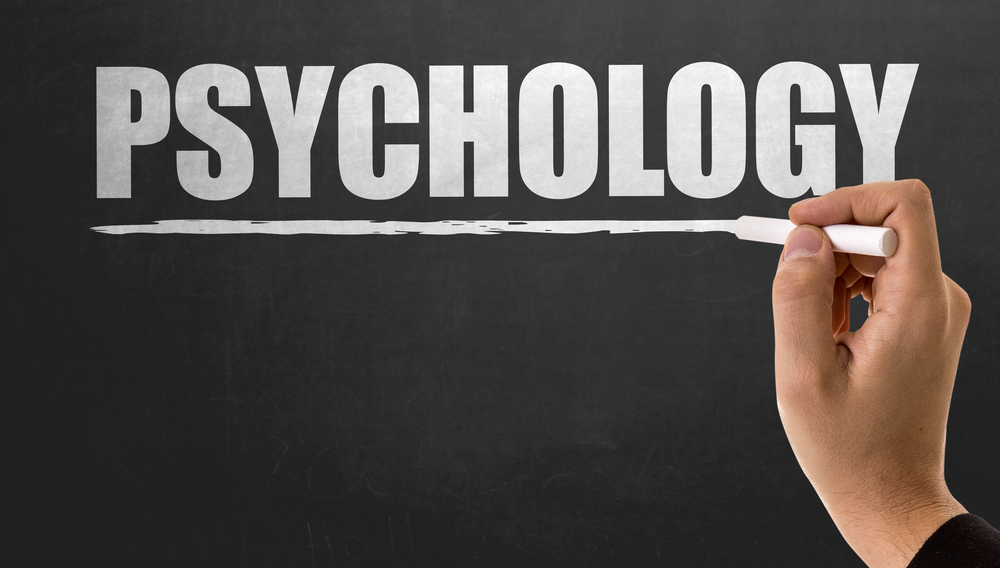Getting your psychology degree can take a couple of years, depending on the degree level of the program you want to pursue. The program duration depends on several factors, including your enrollment status (full-time or part-time) and the number of courses you choose to take each semester.
Each degree level in psychology can have different requirements and career pathways.

Here are some of the more popular psychology degree programs, and how long they take to complete:
How Long Does it Take to Get an Associate’s Degree in Psychology?
Earning an associate’s degree in psychology typically requires approximately two years of full-time study at a community college or vocational school. The duration may vary based on the specific program structure, the number of courses taken per semester, and any prior credits transferred from previous coursework or advanced placements.
The program introduces students to fundamental concepts and theories in psychology, featuring a variety of courses that cover topics like introductory psychology, human development, social behavior, and research methods. The curriculum aims to provide students with a solid foundation in the field of psychology and an understanding of the basic principles and theories.
An associate’s degree can serve as a stepping stone towards further education or entry-level positions in fields related to human services. While it may not qualify graduates for careers as professional psychologists, it can be a valuable starting point for individuals interested in exploring psychology or seeking to gain foundational knowledge before pursuing a higher degree.
Additionally, credits earned during an associate’s program can often be transferred to a bachelor’s program, potentially reducing the time it takes to get a bachelor’s degree in psychology.
How Long Does it Take to Get a Bachelor’s Degree in Psychology?
Typically, earning a bachelor’s degree in psychology takes about four years of full-time study at a college or university. This duration is based on completing the required coursework and credit hours for the degree program. However, it’s important to note that the exact time to complete a bachelor’s degree can vary depending on factors like specializations, the number of courses taken per semester, and any transfer credits from previous coursework, advanced placements, or if you hold an associate’s degree.
Bachelor’s degree programs expose students to a broad range of foundational courses that cover various aspects of psychology, including cognitive processes, human development, social behavior, and research methods.
They also have opportunities to select elective courses that align with their interests and career goals within the field. Additionally, some programs may offer internships or research experiences to provide hands-on learning and practical application of psychological principles.
After completing a bachelor’s in psychology, graduates can pursue various paths. Some may choose to enter the workforce directly, finding employment in fields such as human resources, social services, marketing, or research assistance.
Others may decide to pursue advanced degrees in psychology or related fields to specialize further and expand their career opportunities in areas such as counseling, clinical psychology, industrial-organizational psychology, or research.
How Long Does it Take to Get a Master’s Degree in Psychology?
Earning a master’s degree in psychology usually requires a commitment of approximately two to three years of full-time study. The specific duration can vary depending on the program structure, course load, and whether you are enrolled part-time or full-time.
When pursuing a master’s degree program, students delve into advanced coursework covering various areas of psychological theory, research methods, and practical applications. They may also have opportunities for internships, research projects, or supervised clinical experiences.
These experiences allow students to develop a deeper understanding of psychological principles and gain valuable hands-on skills in areas such as assessment, counseling, or research design.
Getting a master’s in psychology can provide a solid foundation for further academic pursuits or open doors to diverse career paths. Some graduates choose to enter the workforce, working in mental health services, human resources, social services, or research assistance.
Others may pursue doctoral studies in psychology or related disciplines to further specialize and advance their careers in academia, research, or clinical practice.
How Long Does it Take to Get a Doctorate Degree in Psychology?
Earning a doctorate degree in psychology is a rigorous yet highly rewarding endeavor that typically requires a substantial investment of time and effort. On average, it takes around five to seven years of full-time study to complete a doctoral program in psychology.
However, it’s important to note that the timeline can vary depending on individual circumstances, program requirements, and the nature of the research involved.
Related: Doctorate Degrees in Psychology: PsyD vs. PhD in Psychology
During the course of a doctoral program in psychology, students engage in a wide range of activities. These may include advanced coursework, intensive research, clinical or fieldwork experiences, teaching assistantships, and the completion of a doctoral dissertation.
The dissertation itself can be a lengthy and demanding process, involving the design, implementation, and analysis of original research under the guidance of faculty advisors.
While the road to a doctorate degree in psychology may be challenging, it also offers a multitude of opportunities for personal and professional growth. Graduates of doctoral programs are equipped with advanced knowledge, research skills, and expertise in their chosen area of specialization, making them well-prepared for careers in academia, research, clinical practice, counseling, and various other fields related to psychology.
To Sum Up
The time it takes to earn a psychology degree varies depending on the level of education pursued. However, regardless of the level of education, earning a psychology degree requires dedication and a passion for understanding human behavior.
An associate’s degree in psychology generally takes around two years to complete, while a bachelor’s degree generally requires four years of full-time study. Master’s degrees typically take two to three years beyond the bachelor’s degree, and doctoral degree programs can take an additional five to seven years to complete.
Keep in mind that this duration may vary based on factors such as program requirements, course load, and the student’s enrollment status. A psychology degree, at any level of education, can lead to rewarding career prospects in counseling, research, or academia.
Frequently Asked Questions (FAQs)
The degree options in psychology include associate’s, bachelor’s, master’s, and doctoral degrees, each offering different levels of knowledge and specialization within the field.
Typically, it takes about two years of full-time study to complete an associate’s degree in psychology.
A bachelor’s degree in psychology usually takes around four years of full-time study to complete.
A master’s degree in psychology typically takes about two to three years of full-time study beyond the bachelor’s degree.
Earning a doctoral degree in psychology generally takes around five to seven years and heavily depends on the research requirements and progress, as well as the time needed to complete your doctoral dissertation.



